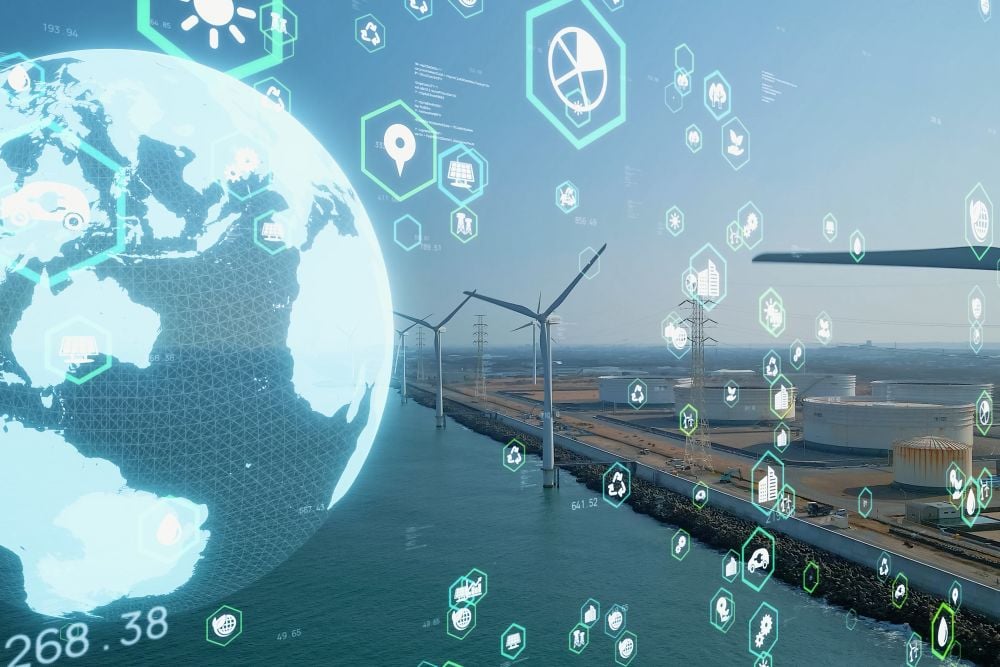Economists are supposed to be good at understanding risk. Decision-making in the face of uncertainty, after all, is the discipline’s bread and butter. Yet at a time when real-world risks – geopolitical, macroeconomic, financial, public-health and environmental – are piling up, many economists seem to be at a loss.
Although businesses and investors stand to make a lot of money if they can properly assess and navigate the current risk environment, no one seems to have a good explanation for why we are where we are. This is especially true in the case of climate change: It is now clear that the risks have been systematically underestimated, and thus mispriced, all along.
One explanation for this is that market participants have failed to understand the size and the probability of the risk, because they have been thinking about the issue in the wrong way. The climate system is not like a casino with well-defined outcomes and probabilities. As a 1987 comment in Nature put it, changes within our planet’s systems may bring all kinds of “unpleasant surprises”. It is as if we were playing with decks of cards that include some unknown number of jokers. Moreover, one also must account for the inherent conservatism of the science. Climate researchers, especially, tend to err on the side of caution.
A classic case is the quantification of sea-level rise. Broadly speaking, sea levels rise for three reasons: melting polar ice caps, melting inland glaciers, and the fact that warmer water takes up more space. But in the Intergovernmental Panel on Climate Change’s reports in the early 2000s, the headline figures fully accounted only for melting glaciers and thermal expansion. Scientists of course knew that global warming would melt polar ice, and that this effect might be the most consequential of the three. But because the estimates for how much faster the poles would melt differed by so much at the time, they were excluded from the headline figures.
That omission has long since been corrected. But it is now economists who are lagging behind in quantifying the economic damages associated with rising seas and the many other interlinked risks and uncertainties accompanying climate change. Quantifying climate-related damage is painstaking work; and in an academic environment that prizes new ideas over what might seem like a mere “accounting” exercise, it is not the kind of work that brings much reward or recognition.
Nonetheless, economists going back to Simon Kuznets, the “father” of the gross domestic product, have been some of the leading critics of economic metrics that purport to represent overall well-being. GDP is central to macroeconomic analysis, but it leaves out many other important indicators, such as those measuring human and planetary health. Standing forests and clean air and water have no value in national-income accounting unless they enter the economy directly as factors of production.
Fortunately, an initiative by US President Joe Biden’s administration aims to correct this shortcoming by developing a new set of “statistics for environmental-economic decisions”. While this effort is not the first of its kind in the world, it is among the most ambitious. The goal is to supplement GDP with a far more comprehensive set of accounts, and then to use this new metric to guide policy decisions.
Such a change is long overdue. Climate change might not have grown into the problem that it has become if its damages had been incorporated into national accounts all along.
This points to a second, equally important reason why climate and other risks have been mispriced. It is one thing for scientists, economists, and informed members of the public to recognize that many risks and uncertainties are not priced; it is quite another to adopt policies that discourage businesses from pushing those risks onto society.
For business leaders, the top climate risk, according to a recent Federal Reserve Bank of San Francisco survey, is that climate change will influence “rules and regulations related to our business”. Executives correctly anticipate that policymakers will want them to pay for greenhouse-gas emissions and other negative externalities instead of being permitted to socialize those costs.
Such measures inevitably will fall into the realm of politics, but economists must not confuse their political preferences with sound policy. Those who are ideologically inclined to look to the “free” market as a guiding principle for organizing society must recognize that a market can function well only when no externality is left unaccounted and unpaid for.
Another Biden administration accounting initiative could help here. The rules for climate-related disclosures proposed by the US Securities and Exchange Commission (SEC) would compel companies to standardize and report both the impact of their operations on the climate and the risks that climate change poses to those operations. The SEC’s effort stops short of asking all polluters to pay for their own pollution; instead, it leaves it up to investors to decide what to do with the new information.
Economists must defend the pivotal role their advice plays in policymaking. The political forces and special interests that bear on this issue will skew their advice and skewer the advisers. But that must not become an excuse for inaction. Intellectual honesty demands that economists and policymakers grapple with how new risks and uncertainties can and will affect outcomes.
Tallying what’s known is hard enough. Accounting for hard-to-price risks and uncertainties like climatic tipping points is harder still. But recognizing those risks and uncertainties makes clear that political action must come sooner rather than later.
Gernot Wagner is a climate economist at Columbia Business School, and Tom Brookes is the executive director of strategic communications at the European Climate Foundation.
Copyright: Project Syndicate









